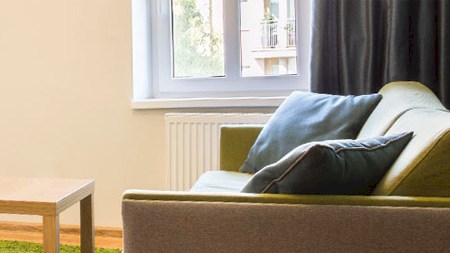When you decide to start looking for a property, you’ll be overwhelmed by the different property types, locations, prices and conditions. By using this checklist from Kevin Mountjoy, national sales manager atooba, South Africa’s biggest bond originator, you should be able to take your first step up onto the property ladder with confidence.
1. Affordability
Of course, the first thing that you need to know is what you can afford. An online affordability calculator like the one found atwww.ooba.co.za/calculators, will help you to work out how much disposable monthly income you have. Bear in mind that most banks generally won’t grant a bond for which the repayments will be more than 30% of your gross income.
You can also get a preapproval certificate from ooba so that you know exactly what you can afford, are familiar with the documentation that you need for the applications process, and can show the seller or estate agent that you mean business.
It’s also a very good idea to start saving up for a deposit immediately, as this makes it far more likely that a bank will grant you a home loan, and will decrease your monthly repayments significantly.
2. Location, location, location
It’s the estate agent’s mantra, but the most important thing to consider is what area is right for you. This depends very much on your own lifestyle, on where the rest of your family and friends live, where you work and where you like to spend your leisure time.
If the area that’s at the heart of all of this is out of your price range, then start to look at prices in neighbouring areas, or consider purchasing a smaller property, or one with less amenities.
3. Travel and traffic
Think about the places that you are most likely to travel to from your new home, most often. Drive or travel those routes at the times of day that you are likely to use them to assess whether the area you are considering is a realistic option for your daily commute.
Also, identify whether the area has been earmarked for any tolls in the future, as this could add a significant expense on to your monthly budget.
4. Maintenance
Be realistic about the kind of home you’ll be able to look after. If you are no good at gardening and don’t have lots of spare time, then don’t buy a property with a large garden. Pools also require lots of work to keep them running well. Don’t fall in love with the idea of the “perfect” house if you’re not going to have the time or inclination to maintain it.
5. Security
In South Africa, unfortunately, crime is a big concern. Once you have identified a few areas in which you might like to purchase a home, spend some time driving around to note the level of security that other people have – electric fences, barbed wire, burglar bars –to get a sense of the levels of crime in the area.
You can also speak to the neighbourhood watch, the local police or the residents to find out more about the safety of the area. And remember that things can change within a couple of blocks, so do this check again for every new property that you consider.
6. Your lifestyle now
Look for a property that suits your lifestyle now – where you work, where you like to go out, where your children go to school, where you work, whether you like to swim, whether you want to own a pet – and make sure that your new home will allow you to live how you want to.
7. Your lifestyle in three to five years
But remember that a property is a long-term investment. If you’re thinking of having a baby, or more children, or beginning to work from home, or moving jobs, make sure that you’ve thought about whether your new home will support all your near-future plans as well.
8. Nice-to-haves and must-haves
Make yourself a list of the things you’d like your home to have and the things you feel that your new home must have. Compare every property you’re considering against this list to make sure that you’re being objective about your real needs.
9. Your appetite for renovation
One way to get an affordable home in a better area is to go for the old fix-me-upper. This is all well and good if you have the budget and the willingness to fix it up. But if you’re not that sort of person, don’t get stuck with a crumbling property that you have no real way of improving. Rather consider another location or a smaller property with fewer features.
10. Additional expenses
As soon as you buy a home, you’ll find that you have to deal with all sorts of “hidden” expenses. Remember that you’ll probably want to paint the walls, plant some flowers, buy furniture and appliances, hire a mover, hire a gardener and contract a security company.
Also look at the average electricity and water costs for the area – remember that the bigger a house and the more add-ons like pools and electric fences it has, the more you’ll spend on electricity and water. You will also pay different rates in line with the council’s valuation of the property, so make sure to find out exactly what this is.
If the realistic expenses of living in a home seem unaffordable, then relook at your purchasing price range, and buy a property that leaves you with a little extra disposable income for all this.
Good luck, and happy hunting!



